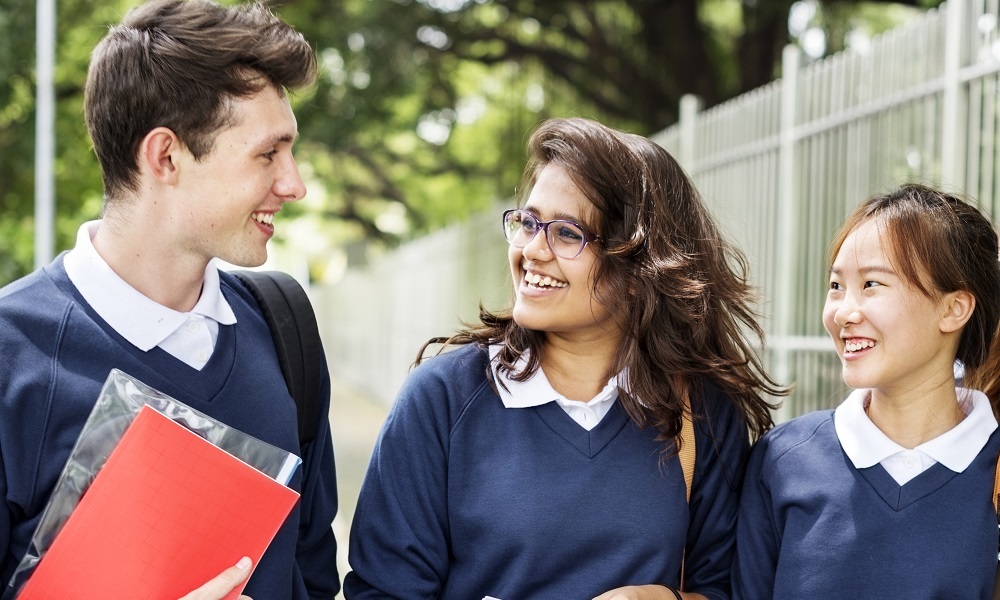A series of consultations have been undertaken by the Commissioner for Children and Young People in Tasmania to ascertain how the overall wellbeing of children and young people in their state can be improved. One key finding from participants was their belief that a more responsive education system would have a positive effect on their wellbeing.
A report summarising the findings from the consultations was prepared by the Commissioner for Children and Young People, Leanne McLean. She tells Teacher her discussions with 498 people aged up to 18 across Tasmania, including 90 parents who spoke on behalf of their children aged between 0 and four years, provided valuable insights.
‘I can’t stress enough how important seeking the views of children and young people and engaging them in any decisions to change the schooling system is to achieving better outcomes for them. The evidence is clear that when we involve students in curriculum design the potential for them to be more engaged in learning is far greater,’ she shares with Teacher.
‘My wellbeing consultations highlighted how passionate young students are about ensuring that the curriculum is relevant and otherwise appropriate to their needs as learners and also as future contributors to the nation’s cultural and economic success.’
A more responsive education system
There were seven specific areas of improvement McLean identified in her discussions with young Tasmanians on how the education system can be more responsive to their needs. They are:
- Financial and other supports to ensure equality of access to education
- Flexible and relevant subject choice that is responsive to student and community needs
- Extension programs and/or self-paced learning support
- More in-class support for students experiencing learning challenges
- Improved and more available school-based support services (mental health, social work, counsellors)
- Improved responses to bullying in schools
- Improved transport options, especially in remote areas, for students to participate in learning opportunities
‘I should stress here that a need for greater support in schools was identified not only for students with learning challenges … It was very clear that, right across the board, students felt they needed more support at school to achieve their full potential and, furthermore, that when one student is not provided with the support they require, all students in a class can be impacted,’ McLean explains.
The relevance of the curriculum is front-of-mind for many young Tasmanians, and McLean says her consultations show students want to be involved in curriculum development and reform. As well as this, children in the state – right down to those in preschool – highlighted how important a healthy environment is to their own mental and physical health, which McLean says is unsurprising for a state like Tasmania where they pride themselves on access to the outdoors.
‘From an educational perspective, many young people I spoke with were very keen to have more environmental related education incorporated into their curriculum,’ McLean shares. ‘This was partly on the basis that they wanted to better understand and contribute to the debates taking place around them.’
School-based support services
Many participants also communicated their desire for improved school-based support services, particularly when it comes to bullying and mental health concerns. Some described their school’s responses to bullying as absent, inappropriate or insufficient. These sentiments are reflected in the experiences of two young Tasmanians:
In high school, I know a lot of the times when you report it [bullying or concerns about someone’s mental health, etc.] nothing really happens, or if it does happen it’s not ongoing. We’ve [had] to make our own support system.
The waitlist for the school counsellor extends into next year. There’s no real school support.
McLean says a number of young people were also concerned that while schools have policies to deal with bullying and other anti-social behaviours, these were either poorly implemented or not implemented at all.
‘With school being the place where they spend the majority of their days … many feel that additional psycho-social supports are required in schools, not only for their general wellbeing but also to enable them to learn better.’
Outside the need for a more responsive education system, there were six other areas identified by young Tasmanians that would have a positive effect on their overall wellbeing. They are: better access to health services; more things to do and places to do them; more support for families; acceptance, belonging and feeling safe; having the things we need; and, protecting the environment and tackling climate change.
References
Commissioner for Children and Young People (2021). We call it happy. Hobart, Tasmania. Accessed July 2021 via: https://www.childcomm.tas.gov.au/.
Participants in these wellbeing consultations shared their desire to have environmental related education incorporated into their curriculum. How could you incorporate environmental education in your classroom?
Young people also expressed their view that bullying policies are either poorly implemented or not implemented at all. When did your school community last review your bullying policy? Is there room to improve its implementation? At your next review, how could you involve students?



